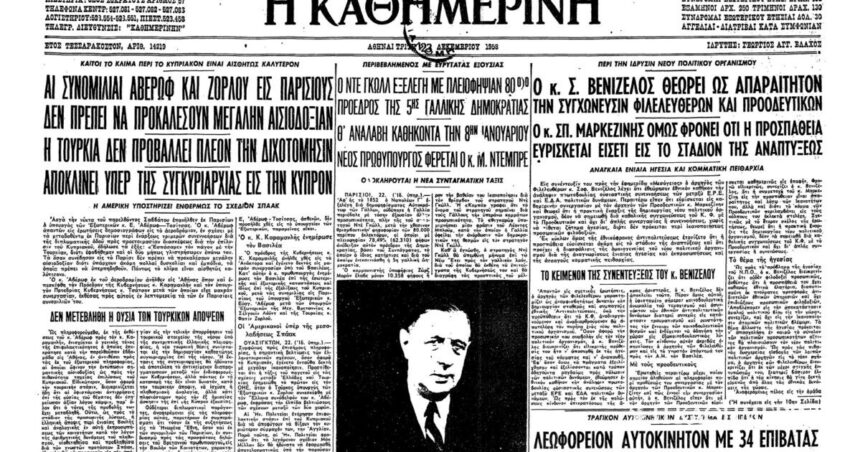France emerged from World War II severely weakened as a nation. The defeat by German troops and the capitulation of June 1940 damaged its prestige as a major European and world power. To a certain extent, the prestige of France was restored thanks to the existence of the resistance. Outside France, General Charles de Gaulle formed the Free French movement, based first in London and then in Algiers. De Gaulle presented himself as the true representative of the nation, leading many to label him as vain. In fact this attitude of the French general was inspired by his profound belief in the greatness of France, which someone had to revive.
In 1944 de Gaulle was the undisputed leader to take over the reins of his country. His government, however, remained in power for some time after the end of the war. In January 1946, de Gaulle resigned as prime minister, facing a host of problems. On top of that, the French National Assembly did not share his views on increasing the powers of the president, a position he naturally favored. He hoped that at the risk of anarchy he would return to power following a popular demand. His hopes were dashed.
The French Fourth Republic collapsed in 1958, unable to provide solutions to the major problems plaguing France post-war – among them decolonization. In June de Gaulle was given the prime ministership and responsibility for drawing up a new constitution. De Gaulle significantly strengthened the powers of the president while at the same time limiting the rights of Parliament. He thus transformed the government of France into a semi-presidential one. Under the new constitution, the president was elected for a seven-year term, could be re-elected, chose the prime minister without the approval of Parliament, had the right to exercise emergency powers and call national elections.
Charles de Gaulle was elected the first president of the Fifth French Republic in the elections of December 21, 1958. “Since in 1852 Napoleon III was elected Emperor of the French by referendum, never has France surrounded another personality with so much power, except that of General de Gaulle, after yesterday’s triumphant vote of approximately 80,000 electors, who with a majority of 78.49% (62,310) votes elected this president of the Republic, based on the Constitution, which he drew up and through which the 5th French Republic was inaugurated”, “Kathimerini” wrote on its front page on December 23, 1958.
Charles de Gaulle officially assumed the duties of president on January 8, 1959. He remained president until April 1969 and passed away in November 1970.
Column editor: Myrto Katsigera, Vassilis Minakakis, Antigoni-Despina Poimenidou, Athanasios Syroplakis





